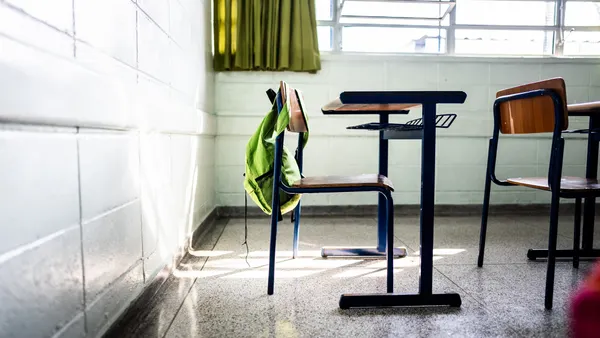Dive Brief:
-
Charter school advocates in Ohio and Michigan filed a lawsuit Monday against the Biden administration over its new funding rule that took effect Friday. The early challenge comes on the heels of the U.S. Department of Education's announcement last month of its final rule limiting funding for charter schools based on new requirements like sufficient demand for creation or expansion.
-
The lawsuit was filed by the Michigan Association of Public School Academies and the Fordham Institute in the U.S. District Court for the Western District of Michigan. It claims the department lacks authority "to issue any new criteria" for the grants.
-
The suit also claims the rule puts charter schools in Michigan and Ohio at a disadvantage — especially those that serve large concentrations of marginalized students, are in districts that are not over-enrolled, or whose nearby traditional public schools are unwilling to cooperate with charter school programs.
Dive Insight:
The lawsuit challenges how the department plans to prioritize distribution of its charter funds — through a discretionary grant — and claims the 35-day comment period before finalizing the rule was too short.
The Department of Education, however, often issues priorities and rules for how it distributes grant funding. Recently, for example, it released priorities for recipients of two new mental health grants that will be directed to programs hoping to expand and diversify school mental health staff.
The charter school lawsuit, however, also alleges the department was not within its right to create the rule in the first place, saying that the authorizing legislation passed by Congress included "no provision allowing the Secretary to designate additional criteria or priorities for awarding grants."
"So the real problem, I think, and kind of a bigger picture argument is the department doesn't really have any authority to issue priorities like this, period," said Caleb Kruckenberg, an attorney for Pacific Legal Foundation who is among those who filed the lawsuit. Pacific Legal Foundation is a nonprofit that litigates "over government overreach and abuse," according to its website ."And that's, I think, really what the lawsuit is about."
Kruckenberg said an administrative agency such as the Education Department "can't set up just new conditions that are inconsistent with a statute or inconsistent with the scheme that Congress set out." He suggested the department's charter rule is inconsistent with Congress' original purpose for the program.
The lawsuit also seeks a stop to the rule because it says charters in districts with under-enrolled schools would not be able to demonstrate a sufficient need to be considered for the funding. "The most successful charter schools are those that provide educational alternatives to under-enrolled schools, not those that simply house excess numbers of students," according to the suit.
An Education Department spokesperson said the agency does not comment on ongoing litigation.
However, Anna Hinton, director of the Charter Schools Program in the department’s Office of Elementary and Secondary Education, wrote on the agency's blog in July that applicants can use other ways, like current waitlists for the charter school or showing interest in specialized instructional approach, to demonstrate "need" in the community.
"It is critical that in planning for a new charter school, as with the establishment of any new school, there be reasonable evidence demonstrating the need in the community for that school," Hinton wrote. "However, we recognize there are multiple ways applicants can go about doing that."
Kruckenberg said he hopes the lawsuit will help charter schools in the 2023 application process. The department did not use its current rule to give competitive priority to the 2022 applicants and instead used its 2019 rule.
"And if the court accepts our arguments, that means that this entire program — the way they're administering it right now — has to change," Kruckenberg said. "And so every charter school across the nation is potentially affected by the outcome in this case.














